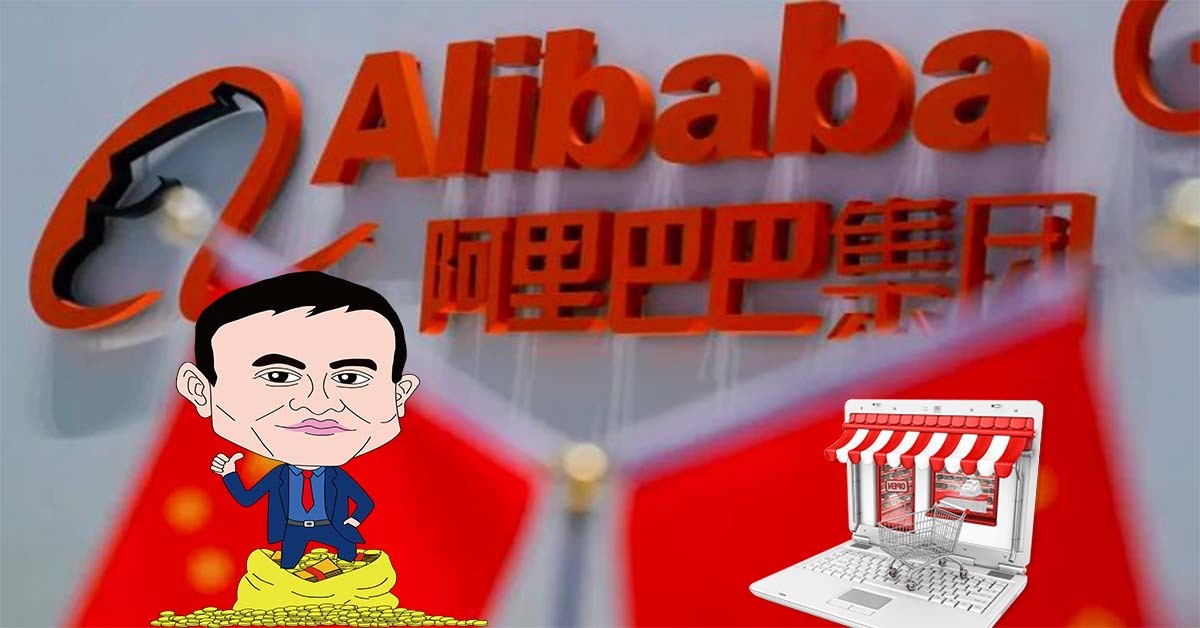Alibaba is a global Chinese technology firm with expertise in e-commerce, retail, Internet, and technology. The firm, which was established on June 28, 1999, in Hangzhou, Zhejiang, offers electronic payment services, shopping search engines, cloud computing services, as well as consumer-to-consumer (C2C), business-to-consumer (B2C), and business-to-business (B2B) sales services via web portals. It manages a diversified portfolio of businesses in many different industries throughout the world.
The most popular online shopping site in the world’s fastest-growing e-commerce sector is Alibaba. Transactions on its online sites totaled $248 billion last year, more than those of eBay and Amazon.com combined. After obtaining $25 billion from its U.S. IPO, Alibaba rose to become one of the most valuable digital business in the world. Along with being among the most valuable state-owned firms in the nation, it is also one of the most valuable Chinese public corporations.
Ali Baba Founder
Jack Ma, the man who founded Alibaba, serves as its spiritual head. Alibaba returns to his former flat for inspiration when it needs a new invention. Despite Mr. Ma’s resignation as CEO, Mr. Ma and other senior executives will still be able to designate more than half of Alibaba’s board members under the company’s present organizational structure. Due to the Hong Kong exchange’s rejection of the structure, Alibaba decided to list in the United States.
Evolution of Ali Baba
The character Ali Baba from the Middle Eastern folktale collection One Thousand and One Nights served as the inspiration for the firm name due to its ubiquity. One of the founders, Jack Ma, responded to Lorraine Hahn on TalkAsia by saying: “One day, I was at a coffee shop in San Francisco and I was thinking Alibaba is a nice name.” When a waitress eventually arrived, I said, “Do you know about Alibaba?” The answer was yes. When I asked what she knew of Alibaba, she said, “Open Sesame.” I then said, “Yes, that’s the name!” Then I walked outside and approached 30 people, asking, “Do you know Alibaba?” There are folks from China, Tokyo, Germany, India, and USA.
They were all aware of Alibaba. It is a sesame seed. Alibaba has 40 robbers. Alibaba does not steal. It is a good-hearted, astute businessman who assisted hamlet. So simple to spell, and well-known. Alibaba makes sesame available to small and medium-sized businesses. If someone wishes to marry us, we have also registered the name Alabama!
E-commerce and Retail Service Platforms
As an English instructor in Hangzhou in 1999, Jack Ma started Alibaba.com, the company’s main operation. Later, as of 2014, Alibaba.com was the largest B2B trade platform for small enterprises worldwide. Three primary services are provided by Alibaba.com: the English-language portal Alibaba.com, which manages sales between importers and exporters from more than 200 countries and regions; the Chinese-language portal 1688.com, which handles domestic B2B trade in China; and the transaction-based retail website AliExpress.com, which enables smaller consumers to purchase small quantities of goods at wholesale prices. Alibaba was delisted once more in 2012 after being public on the Hong Kong Stock Exchange in 2007. A direct channel that 1688.com introduced in 2013 was in charge of $30 million in daily transaction value.
Ali Baba Gold Supplier Membership
To strive to assure that each seller is legitimate, Alibaba.com provides a paid Gold Supplier membership; sellers’ Gold Supplier status and the number of years it has been held are shown. On Alibaba.com website, supplier verification kinds and checks are mentioned, with more rigorous inspections for merchants outside of China.
When Alibaba’s corporate office acknowledged in February 2011 that it had given the “China Gold Supplier” program’s seal of integrity to more than 2,000 dealers who had later deceived customers, uproar resulted; the company’s share price fell “abruptly” as a result.
Yan Limin, the general manager of Alibaba.com at the time, was reportedly fired in March for “misconduct,” according to a statement from the company. Phil Muncaster of the UK’s The Register, also said that “an additional 28 workers had been implicated in questionable deals.”
Cloud Computing & AI
Alibaba launched Alibaba Cloud in September 2009 to coincide with the company’s tenth anniversary, to develop a cloud computing service platform that includes e-commerce data mining, e-commerce data processing, and data customizing. In Hangzhou, Beijing, Hong Kong, Singapore, Silicon Valley, and Dubai, it has R&D facilities and operators.
Alibaba Cloud and Inspur signed a collaboration agreement in July 2014. The biggest premium cloud computing provider in China is Alibaba Cloud. HiChina, the biggest provider of web hosting and domain registration services in China, was purchased by Alibaba in 2009 and integrated into Alibaba Cloud. AliOS (formerly Yun OS and Aliyun OS), a Linux distribution made specifically for mobile devices, was published by Alibaba Cloud on July 28, 2011.
Alibaba introduced AliGenie, a China-based open-platform intelligent personal assistant, during the 2017 Computing Conference in Hangzhou. Presently, it is utilized in the Genie smart speaker.
Ali Baba FinTech and Online Payment
The Alibaba Group introduced Alipay, a third-party online payment system, in 2004. Additionally, it offers an escrow service so that customers may confirm their satisfaction with their purchases before paying the vendor. In a divisive decision, Alibaba Group split out from Alipay in 2010. With 300 million users and control over just under 50% of China’s online payment business in February 2014, Alipay has the largest market share in that country. Yu’ebao, a platform for financial products, was introduced by Alipay in 2013. Alibaba said in 2015 that it will roll out a technology that would allow users to make payments by just identifying the owner’s face. The Alipay corporation changed its name to Ant Financial Services in 2014. (now Ant Group)










